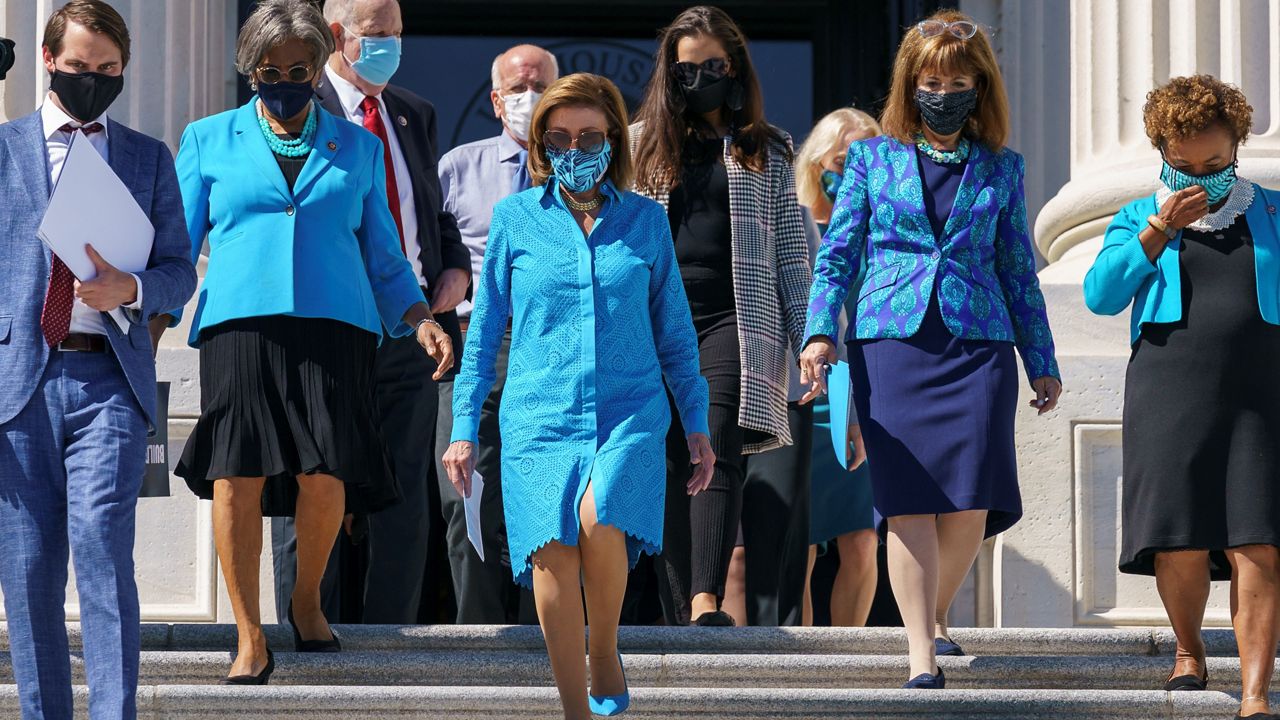House Democrats took action Wednesday night in an attempt to avert a looming fiscal crisis, voting 219-212 – largely along party lines – to suspend the debt limit through December of 2022.
But with Republicans staunchly opposed to taking any action to address the debt limit, the bill is not expected to pass the Senate – and time is running out for Congress to take action to prevent the U.S. from defaulting for the first time in its history.
All but two House Democrats – Reps. Jared Golden of Maine and Kurt Schrader of Oregon – voted in favor of the bill, with only one Republican crossing the aisle to support the measure: Rep. Adam Kinzinger of Illinois.
The vote came one day after Treasury Secretary Janet Yellen warned that the U.S. Treasury "is likely to exhaust its extraordinary measures" if Congress does not take action to suspend or raise the debt limit by Oct. 18, setting a deadline for lawmakers amid the standoff.
"We now estimate that Treasury is likely to exhaust its extraordinary measures if Congress has not acted to raise or suspend the debt limit by October 18," Yellen wrote. "At that point, we expect Treasury would be left with very limited resources that would be depleted quickly."
"It is uncertain whether we could continue to meet all the nation’s commitments after that date," the Treasury Secretary warned. "While this is our best estimate, the federal government's cash flows are subject to unavoidable variability."
The bill now heads to the Senate, where Majority Leader Chuck Schumer, D-N.Y., will ask for consent to pass the bill with a simple majority vote. All it would take is one lawmaker to object, forcing a filibuster, which would mean it would take 60 votes to pass the bill. Senate Republicans will likely object to the measure.
Senate Republicans blocked a bill earlier this week that would raise the federal borrowing limit and fund the government through December, as well as provide billions in funding for recent natural disaster relief and aid for Afghan refugees. Republicans have refused to address the debt limit, despite bipartisan support to raise the limit multiple times under former President Donald Trump, forcing Democrats to go it alone.
Schumer warned earlier Wednesday that the Senate "cannot and will not" use the budget reconciliation process – the mechanism by which they do not need any Republican support to pass legislation – to raise the debt limit, saying it puts the chamber in "uncharted waters."
"This body cannot and will not go through a drawn-out and unpredictable process sought by the minority leader," Schumer said, in reference to Senate GOP leader Mitch McConnell of Kentucky, who has refused to take action on the debt limit and urged Democrats to go it alone.
"To do this through reconciliation requires ping-ponging separate bills back from the Senate and the House," Schumer explained, noting that any single Republican senator could delay the process: "Individual senators could move to delay and delay and delay."
Schumer said the move "is very risky and could very well lead us to default."
"As default gets closer and closer to becoming a reality, our Republican colleagues will be forced to ask themselves how long they are going to continue playing political games while the economic stability of our country is at risk," Schumer added.



